Since 1973, hip-hop has been a megaphone for Black men. The mental health struggles, sexual awakenings, and aging revelations have been shared across the world in their lyrics and advocacy. To celebrate Hip-Hop’s 50th anniversary and Black History Month, Men’s Health is exploring each of the culture’s last five decades to highlight moments and movements that reflected and influenced Black men’s health. To read the rest of the stories, click here.
For years, Mark Jenkins was the trainer who kept hip-hop in shape. In the 2000s, he trained Mary J. Blige, D’Angelo, LL Cool, and even Beyoncé. Most notably, he helped Bad Boys Records founder Sean “P. Diddy” Combs’ shed some of his party-going antics to lock in and get his body in shape within six weeks to run the 2003 New York City marathon. In his own words, below, he shares how Diddy brought generations of Black men to their feet.
IN 2000, I was training Chris Chambers, a famous publicist, who told me, “My client noticed I’m getting in shape. We want to get him from behind the piano. His name’s D’Angelo.” I asked Motown Records for $30,000 for 30 or 60 days to get him in shape. They gave me the $30,000, and I incorporated myself, quit my job, and followed D’Angelo everywhere he went. The result was the “Untitled (How Does It Feel)” video. At the very same time, I finally got to Mary J. Blige, who took me on tour at the same time the “Untitled” video came out. They got me out of the projects, and D took me on the road afterward. That’s how I became a celebrity trainer.
I worked at Reebok Sports Club on 67th and Columbus in 2003, and I would just run across the street and hit Central Park, which is 6.2 miles around. That would be my cardio workout. As I ran through the park, I thought, “There ain’t no Black people out here.” I was like the only Black person running. At that time, Black people paying for training was a very new thing. Back then, it was very much, “Oh, you got a trainer? That’s weird.”
So, I was like, “I bet I can get some brothers and sisters running if I can get one of my celebrity clients to run the marathon.” I wrote it out on my SkyTel pager, so anytime I bumped into a celebrity, I could hit him with the SkyTel. I initially wrote that for D Angelo; he said, “I ain’t running no marathon, bro.” Then I hit Mary [J. Blige] with the idea, and she’s like, “No, I’m not running a marathon.”
During my first two weeks working with Puff, he wasn’t very engaged. I figured I would get fired soon if I didn’t get him in shape or do something. But he responds well to challenges. One day I was in the gym with him, and he told me how much of a renaissance man he was. I told him, “You’re not a Renaissance man unless you ran with the bulls or ran the marathon; you got to have a physical endeavor under your belt.” The next day, he told me, “We’re running the marathon. I called up MTV.” It was two months before the marathon. Usually, it takes someone six months to a year of training, and he wasn’t a runner.
I went everywhere he went because we had to get the road work in. We trained on the yacht, going back and forth from Ibiza to Italy to Saint-Tropez. It was him, Big Meech, and his brother on the yacht; they brought their girlfriends or wives and me. We also got some running in New York, but it was a very interesting experience to be on the yacht training, coming from the projects not very long ago. He was not used to taking orders until the training, but he did it. He just looked at me like I was crazy. It was a minute since he heard somebody tell him what to do. The funniest thing is I don’t think he used my name the whole time. He called me “playboy” the whole year I trained with him.
He was partying quite a bit during that training and still was able to gut it out. Fucking willpower, man. His determination is inhuman. He might have cut back on the partying, but he didn’t stop. He was flying DJs into the yacht. I can remember times I would have to check into a hotel just to get some sleep. I’m like, “I can’t fuck with you.” But he’s kind of built for it. One time we did TRL after practice. He had to run on the treadmill for an hour while the mic was on him, right after running maybe 12 or 13 miles outside the day before. There were much fewer recovery days than it would be for somebody usually training for a marathon because there was no time.
He never skipped a workout. He never skipped the ice baths. He never not did anything. Sometimes we had to do hill repeats for an hour and a half, two hours, just running up the hill and running back down and running in Saint-Tropez in 100-plus degrees. He never quit. When I see him now, we just look at each other and shake our heads to say, “That shit was crazy.” We started at six miles because there was no time to do anything less than that. And then we had a set distance, maybe two or three times a week. We had hill repeats, running up and down the hill for a certain amount of mileage once a week. And then, on the weekends, we had the long run, probably double the amount you do during the regular training cycle. And then we backed off until the following week. We added two or three miles to his distance runs each time until he got to 20 miles, but the sprint and the hill work stayed the same.
On top of that, we were doing weight training. We kept the weights heavy; I wanted to get as much musculature on him as possible to deal with that impact because your back and your knees take a pounding. So heavy legs, heavy lower back, heavy core work. Weights three times a week, 20 minutes to a half hour.
We did a moderate carb, high protein, moderate fat diet. He was eating maybe five to six meals a day. I would give the ratios to his chef. I think it was maybe 25 grams of protein and 60 to 150 grams of carbs per meal. Divided into four or five meals, two of which would be protein shakes. And the chef would just do it.
The camera was right in our faces, so there was no way to fail. Who wants to do that on camera with America watching? With that in mind, we tried to get as many experts to help as possible. Nike got us Alberto Salazar, who at the time was the last American to win the New York City Marathon. He was coaching us during some of our runs. Nike University has rooms that simulate any temperature on earth, any weather condition, within two or three seconds. [Diddy] had his meal prep before meal prep was invented. We had his blood work analyzed before anybody did that in ‘04. We were as scientific as possible because we knew we needed everything to get it done within that two-month timeframe. We ran that marathon and raised $2 million for the public school system. He finished it in four hours and 25 minutes, not bad for a beginner’s first marathon ever.
To this day, it’s one of the highest turnouts for the New York City Marathon because the ‘hood came out to see Puff run. I was very intent on getting people in my culture in shape, so they could then affect change and motivate all Black people to get in shape. So I turned down plenty of A-listers in Hollywood just to work with a N.O.R.E., get with a Puff, train Busta, or train Johnnie Cochran. All the other Black trainers would target white people and white celebrities. So by default, I became the Black celebrity trainer.
I still think Black people are hesitant to spend money on something that’s not material that they can’t see, like a car or a diamond watch. That’s still a big disconnect in the community. I trained a bunch of people who sacrificed their health to get rich. And if they could tell you again, they’d say, “I should never have done that.” I think with the pandemic now; people realize you have to have physical wellness, mental wellness, psychological wellness, and social wellness.
My only complaint is that I wish he would’ve turned it into a running clinic or school for kids. If he would’ve taken it a little bit further, we’d be rocking now. If he would’ve stayed, it would’ve been crazy right now. He could’ve had his own Bad Boy marathon.
Still, Puff did a lot for running. For the runners I trained, that’s the first thing they want to talk about. It influenced many people to put on their sneakers to start running and to believe they could do it because, first, you have to believe it’s possible. If you start with a mile and build up, you can do it. To anybody reading this article, all you have to do is jump out there, challenge yourself, and have some fun.
Freelance Writer
William E. Ketchum III is a journalist who is based in New York City and dedicated to covering the intersection of music, culture, and society. His work has appeared in Vulture, Entertainment Weekly, GQ, and more.

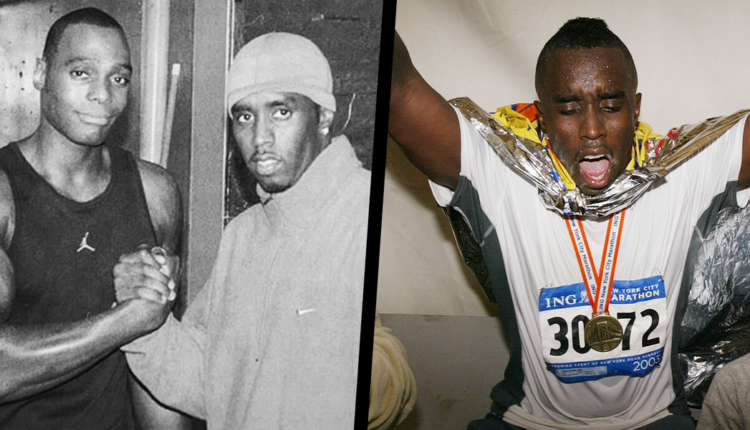
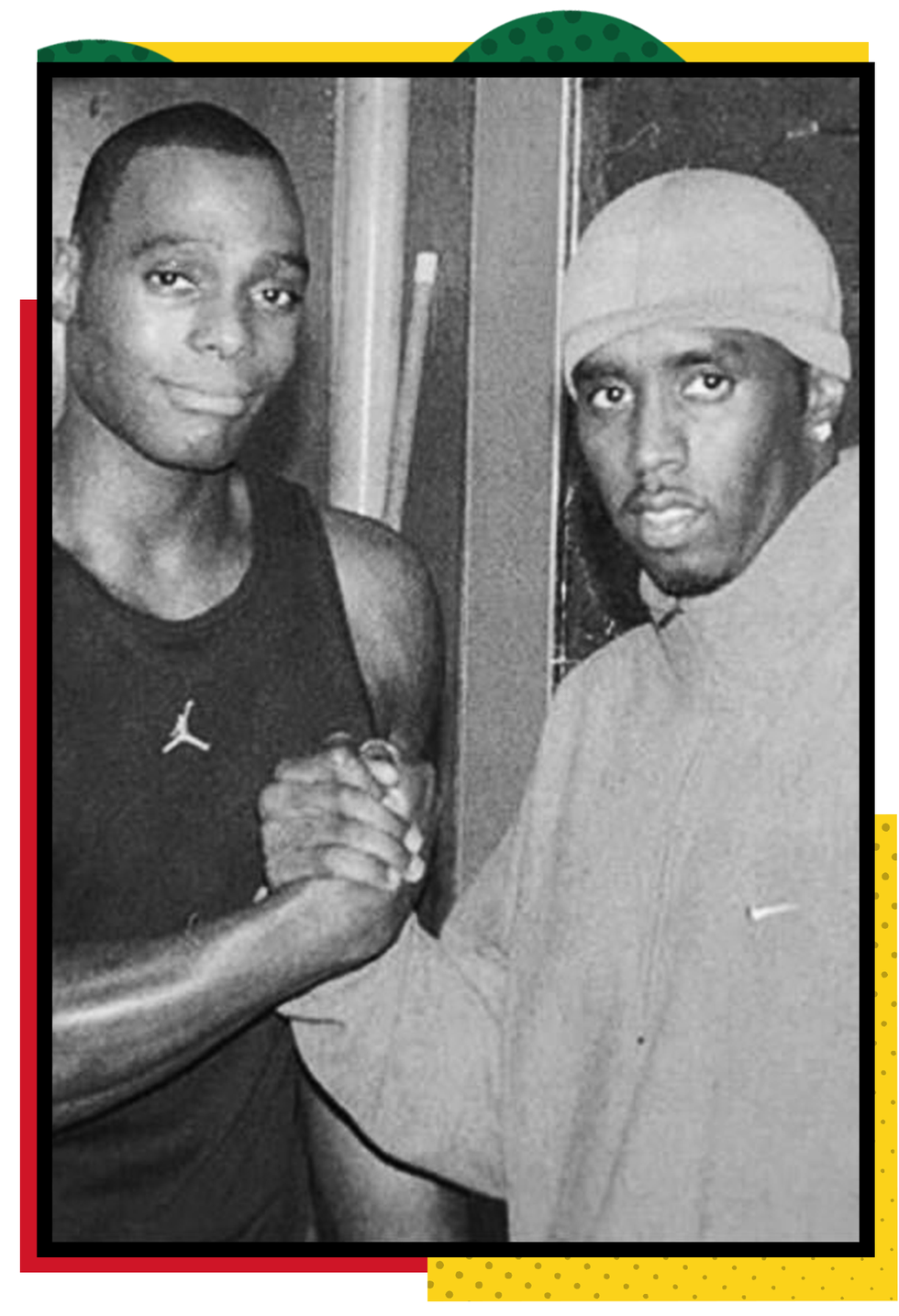
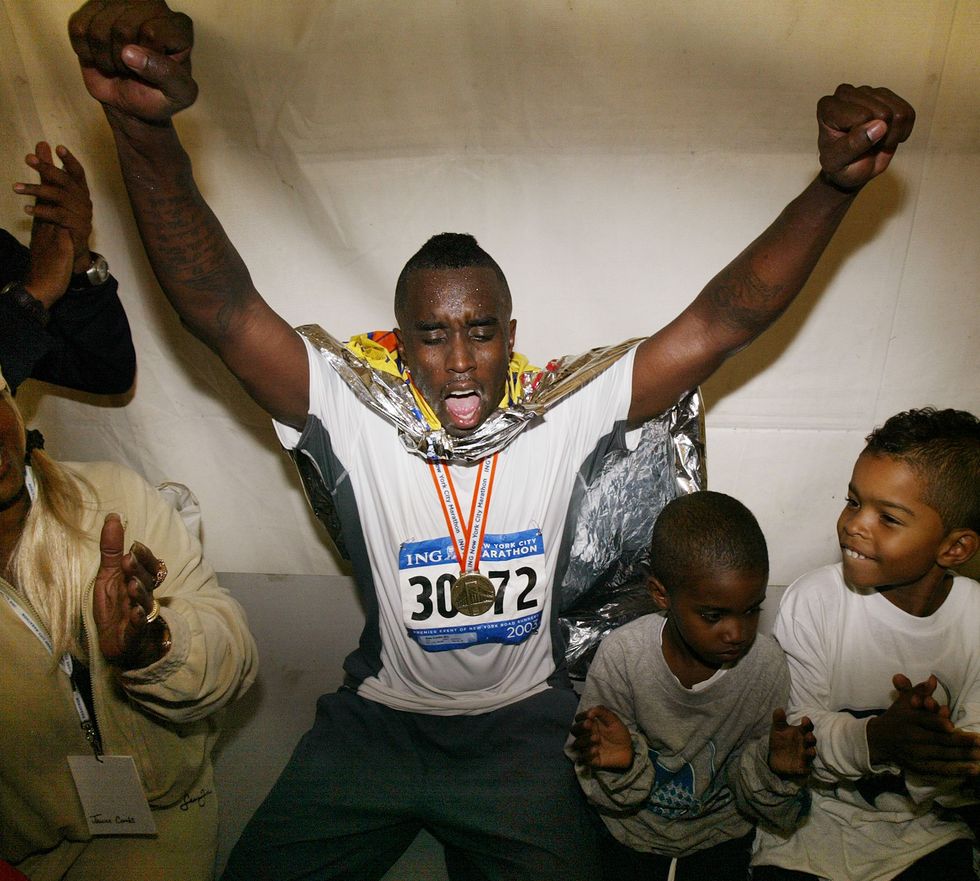
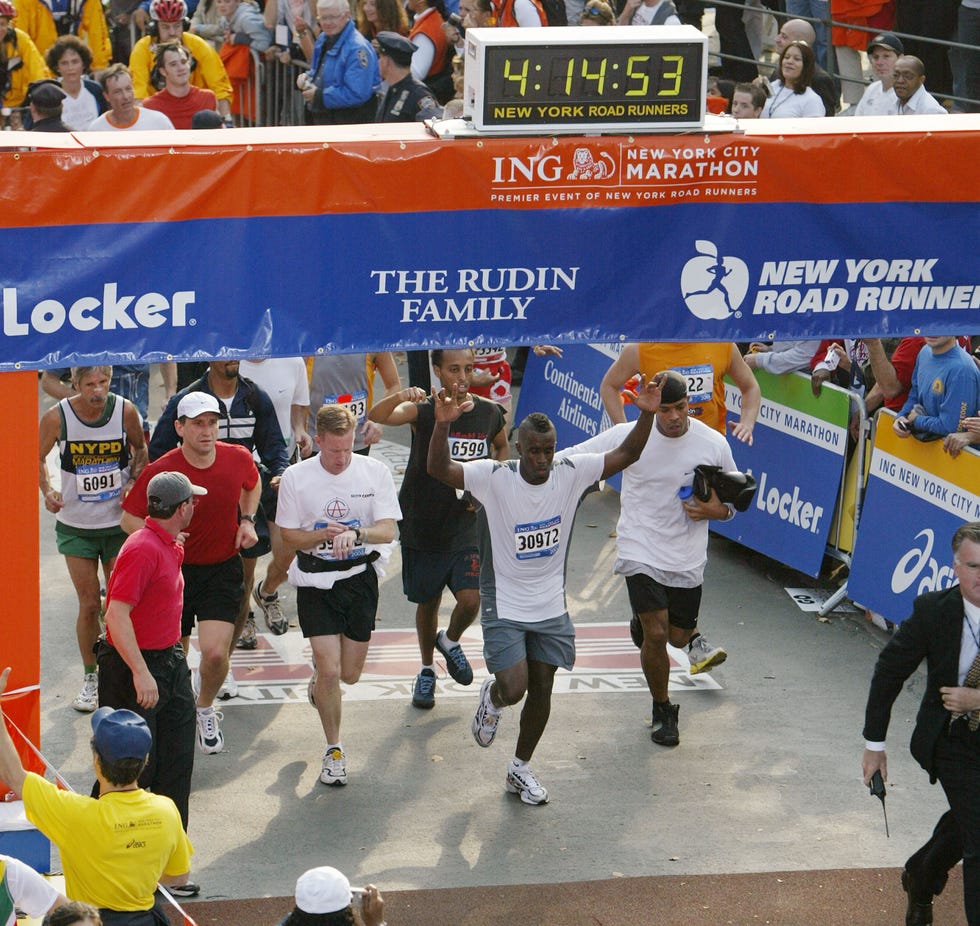

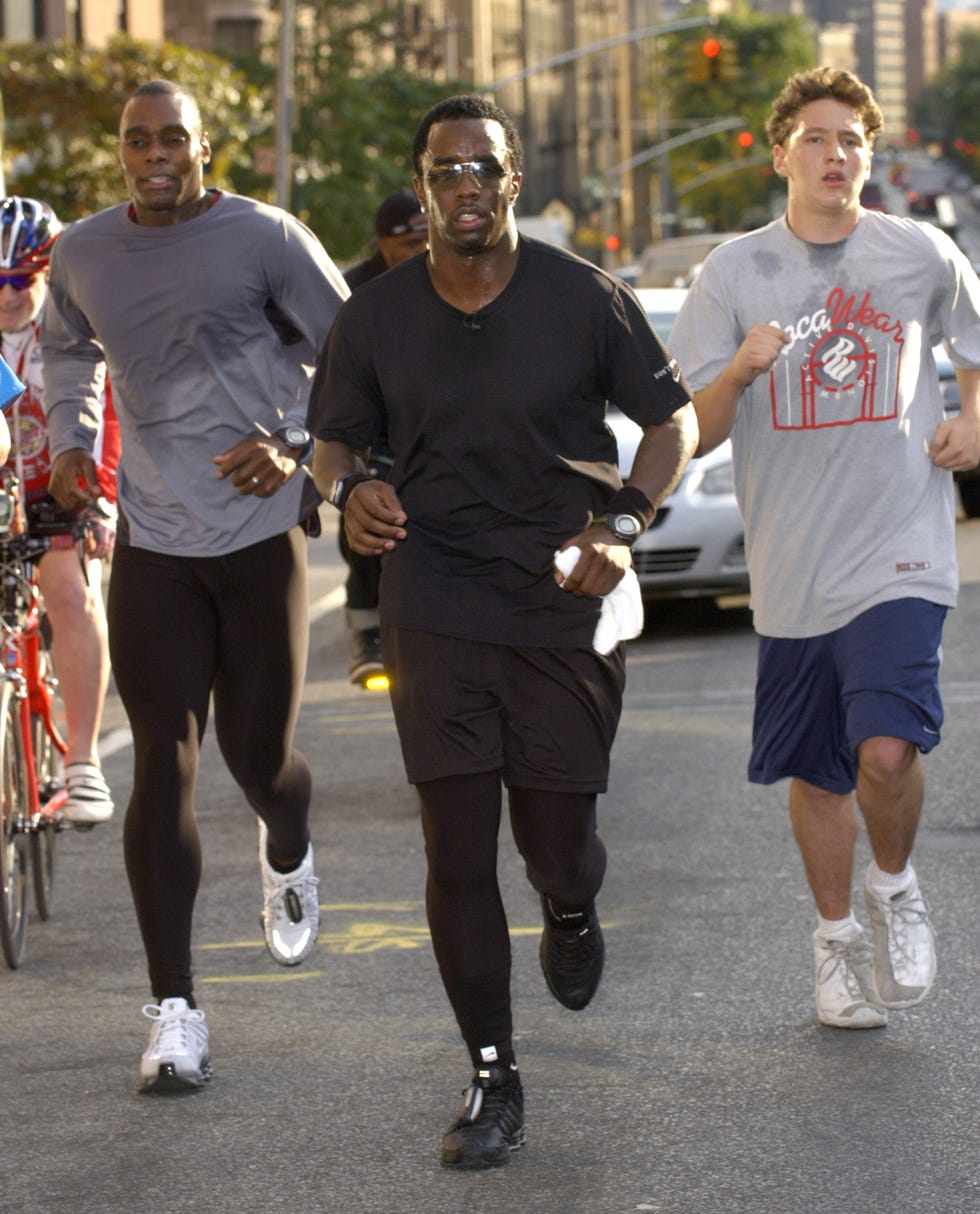

Comments are closed.